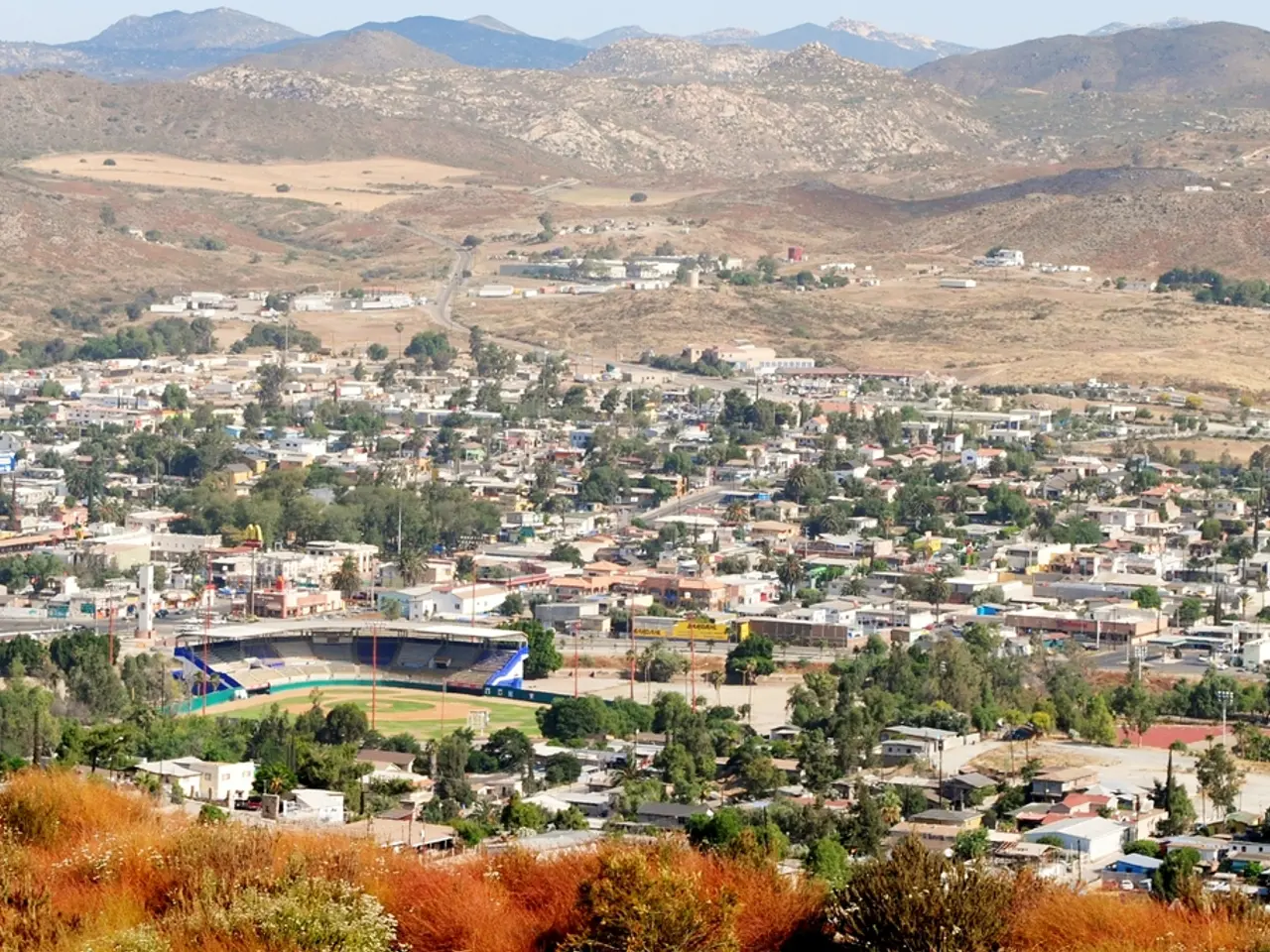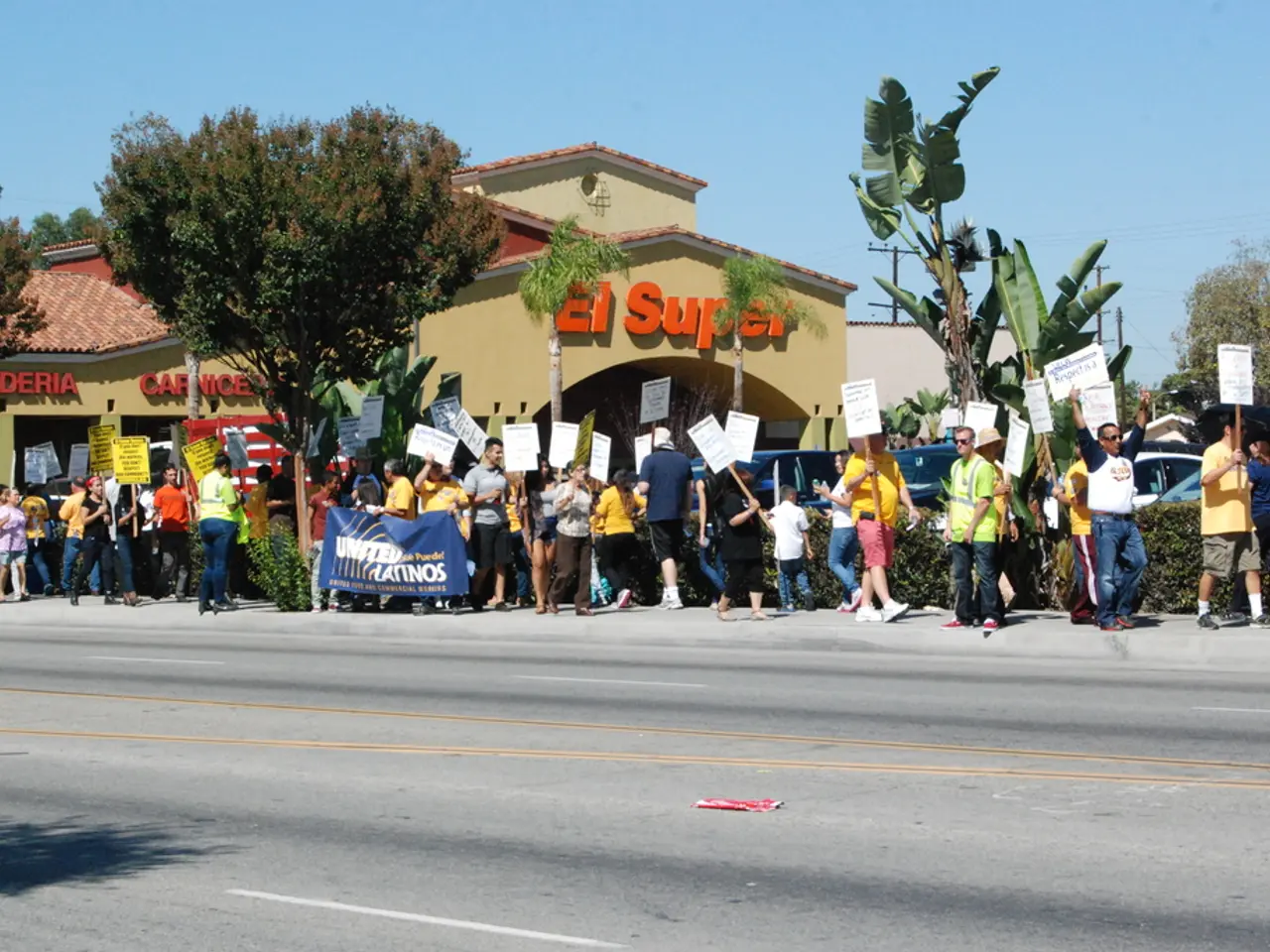Political Stance on Immigration in Poland: Insights from the Two Presidential Contenders
Poland to Hold Presidential Runoff Vote in Early June: Migration Remains Central Issue
Poland is set to conduct a second-round presidential election in June, with the two main contenders, liberal-centrist Warsaw Mayor Rafal Trzaskowski and conservative Karol Nawrocki, offering stark contrasts. Trzaskowski represents the Civic Platform party, led by former Prime Minister Donald Tusk, while Nawrocki, although nominally independent, is backed by the right-wing Law and Justice party (PiS).
Migration, a contentious issue in Poland, particularly concerning the war in Ukraine and its eastern border with Belarus, dominates the campaign. Belarus has been accused of guiding asylum seekers and other unauthorized migrants across the border, allegedly to destabilize the EU. Prime Minister Tusk suspended the right to asylum on Polish territory, a move criticized by human rights groups but defended by Tusk as a necessary measure to secure the Polish and European border.
Polish forces have faced accusations of violently repelling people seeking shelter, a matter currently under scrutiny by the European Court of Human Rights.
Trzaskowski, the Civic Platform candidate, has weapons from his migration platform to appear tough on the issue and counter his opponent's more conservative stance. He has previously spoken against immigrant criminality and increased patrols in the capital during his tenure as mayor. He endorsed Tusk's suspension of asylum and expressed a desire to reduce benefits for those seeking shelter in Poland.
In a debate with Nawrocki, Trzaskowski voiced his position on the EU Pact on Migration and Asylum, which could obligate Poland to accept more refugees from Middle Eastern and African countries or face penalties. Trzaskowski, according to the Polish Press Agency, stated, "The migration pact will never come into force," and added, "if we help Ukrainians, we won't take anyone else."
Nawrocki has taken an even stronger stance on immigration. In the same debate, he labeled migration a "major problem" and advocated for deportation centers for unauthorized migrants, rather than integration centers. He has also pledged to ensure that Polish citizens do not receive lesser treatment than refugees when accessing public services, healthcare, and childcare.
Historically, Poland, traditionally seen as a country of emigration, has witnessed a significant influx of immigrants, driven mainly by individuals fleeing the Ukraine conflict and those seeking employment in Poland. In 2024, over half a million applications for residence permits were submitted, making Poland the EU leader in the number of permits issued each year.
The incoming president will significantly influence Tusk's future legislative agenda. A Trzaskowski victory would likely facilitate Tusk-backed legislation, while a Nawrocki win could hinder progress. Although migration is just one of the issues in this election, it could prove decisive in determining Poland's future direction.
Regarding the government's stance on immigration and asylum seekers, Poland is implementing new immigration rules effective June 1, 2025. These reforms include electronic work authorization, stricter oversight for employers, and increased penalties for illegal employment. The government is also streamlining the hiring process for foreign workers while maintaining stricter contract and notification requirements for employers. Enhanced border security measures, including a border wall, have been implemented along the Polish-Belarusian border in response to increased migrant crossings and tensions.
- The Poland presidential runoff vote in early June highlights the contrasting views of the candidates, particularly regarding migration, as it remains a central issue, with both Trzaskowski and Nawrockiw offering differing stances on EU policies such as the Pact on Migration and Asylum.
- The incoming Polish president's position on migration and asylum will significantly impact the country's policy-and-legislation related to immigration, as well as its relationship with the EU, given the ongoing tensions along Poland's eastern border and the general-news around human rights allegations.








